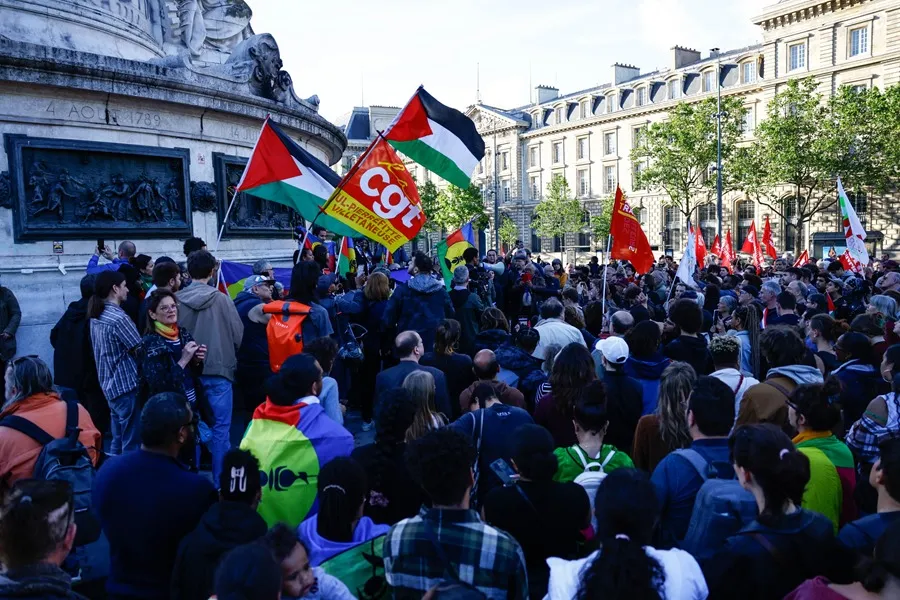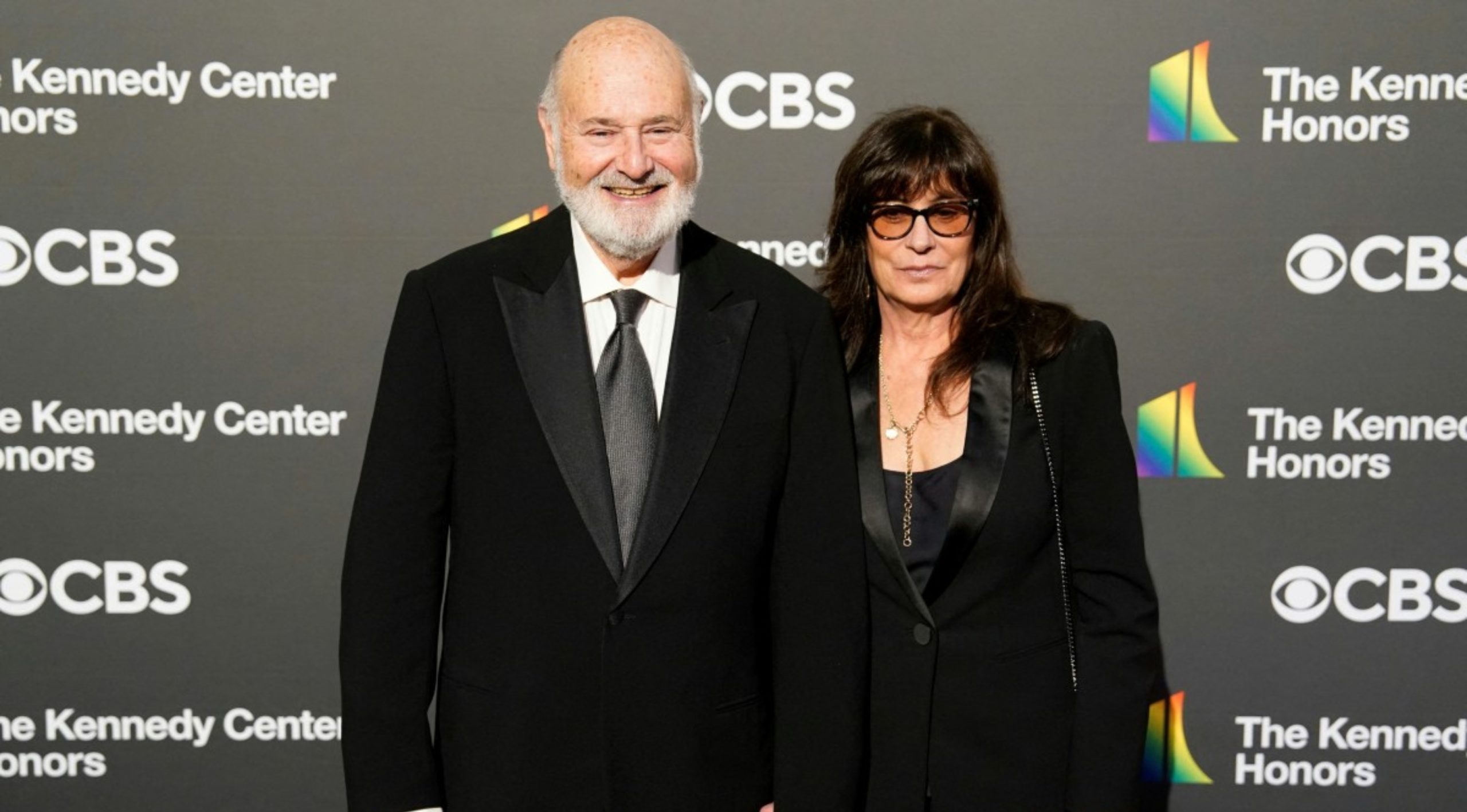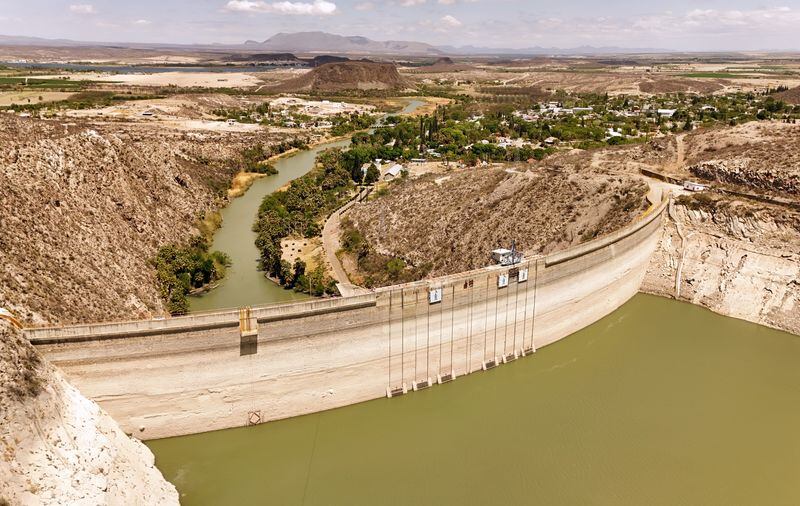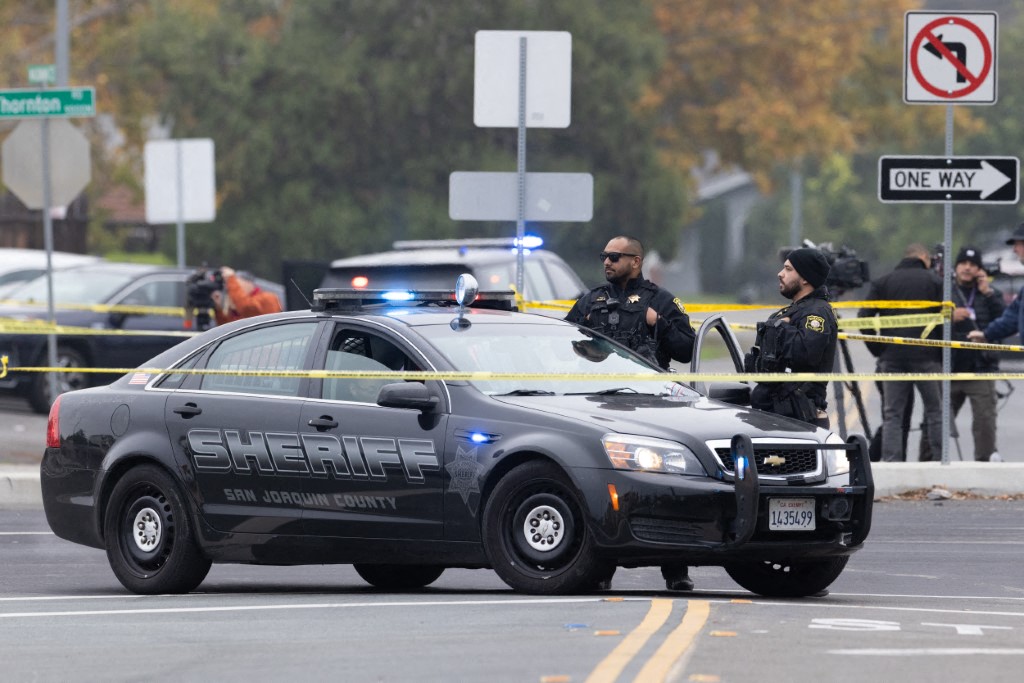International
Macron travels to New Caledonia in the face of the wave of riots

he French president, Emmanuel Macron, will travel this afternoon for a “mission” of dialogue in the territory of New Caledonia, which has been suffering a wat of riots for nine days.
The presidential trip was announced by the Government’s spokeswoman, Prisca Thevenot, after the weekly Council of Ministers, in which the situation in that autonomous French archipelago of the South Pacific was discussed, where a clear improvement has been observed in recent days, although without the calm having been totally restored.
Macron’s decision comes after the requests of regional leaders and legislators of overseas territories, who had asked the head of state for a process of dialogue to try to close the cause of the riots, which is the reform of the electoral census of the territory.
The riots were widespread on Tuesday of last week after the National Assembly approved the opening of that census, which has been blocked since 1998, the date of the Numea agreements.
As prosecutors Yves Dupas denounced today, those riots were planned. So far, about 400 companies and shops have been destroyed or damaged in the capital, Nouméa, and its surroundings, have caused 6 deaths and destroyed or damaged.
“The chain of events suggests a preparation, an organization and a planning in terms of logistics and media,” said the prosecutor, in an interview published on Tuesday by a local newspaper.
He also points out that, despite the progressive reduction of violence after the sending of a reinforcement of a thousand police and gendarmes, “there are still hot spots of violence” fed by “decided” people who continue to shoot at the security forces.
Following the beginning of the protests, Macron proposed to postpone the entry into force of the census reform and initiate political dialogue between all parties, something that he will predictably do on his trip to Numea, the duration of which has not yet been specified.
The Numea agreements established the organization of three self-determination referendums, which were held in 2018, 2020 and 2022. In the first two, the rejection of independence won by a decreasing margin (56.67 and 53.26%, respectively).
The third was celebrated with controversy, since the independence fighters boycotted him after asking for his postponement due to a wave of coronavirus. In those circumstances, the ‘no’ achieved 96.5% but with a participation of 43.87%.
The territory, made up of three very separate archipelagos, is also characterized by strong social inequalities and faces an economic downturn due to the fall in the international price of nickel, the main source of income.
Tourism is not as developed as in the other French territory of the Pacific, Polynesia.
International
Police investigate deaths of Rob Reiner and wife as apparent homicide

The Los Angeles Police Department (LAPD) is investigating the deaths of Hollywood actor and filmmaker Rob Reinerand his wife as an “apparent homicide,” amid a wave of tributes to the director of classics such as When Harry Met Sally.
According to U.S. media reports on Sunday, Rob Reiner and Michele Singer Reiner were found dead at their Los Angeles mansion with what appeared to be stab wounds.
Several political figures shared messages of condolence following the reported deaths of the director of A Few Good Menand his wife.
While the LAPD did not officially confirm the identities of the victims, it stated that homicide detectives were dispatched to the Reiner residence.
“At this time, no additional details are available and the investigation into an apparent homicide is ongoing,” the Los Angeles Police Department said in a statement posted on social media.
LAPD Deputy Chief Alan Hamilton told reporters that no arrests have been made and that no individuals are currently being questioned as suspects.
“I’m not going to confirm whether anyone is being questioned at this moment or not. We are going to try to speak with as many family members as we can,” Hamilton said.
CNN reported that a family spokesperson confirmed the deaths of Reiner and his wife.
California Governor Gavin Newsom, former U.S. President Barack Obama, and former Vice President Kamala Harrisissued statements expressing their condolences.
International
U.S. and Mexico Reach Deal to Address Water Deficit Under 1944 Treaty

The United States and Mexico have reached an agreement to comply with current water obligations affecting U.S. farmers and ranchers and for Mexico to cover its water deficit to Texas under the 1944 Water Treaty, the U.S. Department of Agriculture said in a statement.
The department уточified that the agreement applies to both the current cycle and the water deficit from the previous cycle.
On Monday, U.S. President Donald Trump accused Mexico of failing to comply with the water-sharing treaty between the two countries, which requires the United States to deliver 1.85 billion cubic meters of water from the Colorado River, while Mexico must supply 432 million cubic meters from the Rio Grande.
Mexico is behind on its commitments. According to Washington, the country has accumulated a deficit of more than one billion cubic meters of water over the past five years.
“This violation is severely harming our beautiful crops and our livestock in Texas,” Trump wrote on Monday.
The Department of Agriculture said on Friday that Mexico had agreed to supply 250 million cubic meters of water starting next week and to work toward closing the shortfall.
Agriculture Secretary Brooke Rollins, quoted in the statement, said Mexico delivered more water in a single year than it had over the previous four years combined.
Trump has said that if Mexico continues to fall short of its obligations, the United States reserves the right to impose 5% tariffs on imported Mexican products.
Mexico’s Deputy Foreign Minister for North America, Roberto Velasco, said that a severe drought in 2022 and 2023prevented the country from meeting its commitments.
International
Several people shot in attack on Brown University campus

Several people were shot on Saturday in an attack on the campus of Brown University, in the northeastern United States, local police reported.
“Shelter in place and avoid the area until further notice,” the Providence Police Department urged in a post on X. Brown University is located in Providence, the capital of the state of Rhode Island.
U.S. President Donald Trump said on his social media platform Truth Social that he had been briefed on the situation and that the FBI was on the scene.
At 5:52 p.m. local time (11:52 p.m. GMT), Brown University said the situation was still “ongoing” and instructed students to remain sheltered until further notice.
After initially stating that the suspect had been taken into custody, Trump later posted a second message clarifying that local police had walked back that information. “The suspect has NOT been apprehended,” the U.S. president said.
-

 International5 days ago
International5 days agoWashington declares State of Emergency as atmospheric river brings severe flooding
-

 International5 days ago
International5 days agoU.S. to require five-year social media history from tourists under Visa Waiver Program
-

 Central America4 days ago
Central America4 days agoHonduras election crisis deepens as CNE president denounces intimidation attempts
-

 Central America5 days ago
Central America5 days agoOAS and EU urge honduran political actors to respect vote results and avoid unrest
-

 International4 days ago
International4 days agoCuba battles out-of-control dengue and chikungunya epidemic as death toll rises to 44
-

 International4 days ago
International4 days agoColombia says it would not reject Maduro asylum request as regional tensions escalate
-

 International2 days ago
International2 days agoSeveral people shot in attack on Brown University campus
-

 International14 hours ago
International14 hours agoPolice investigate deaths of Rob Reiner and wife as apparent homicide
-

 Central America1 day ago
Central America1 day agoPanama seizes over three tons of drugs hidden in Caribbean port container
-

 International4 days ago
International4 days agoEcuador on track for record violence as homicides hit highest level in Latin America again
-

 International5 days ago
International5 days agoSix ecuadorian soldiers jailed pending trial for alleged extrajudicial execution
-

 Central America14 hours ago
Central America14 hours agoOAS urges swift recount in Honduras as election results remain uncertain
-

 International2 days ago
International2 days agoU.S. and Mexico Reach Deal to Address Water Deficit Under 1944 Treaty


























